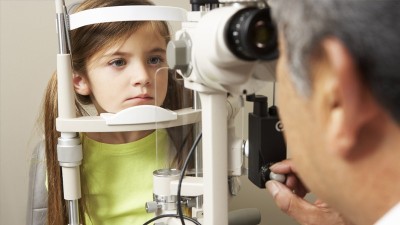
- any reduced vision
- any signs of squint (where one eye is pointing in a different direction to the other)
- assessing whether the two eyes are working together normally.
We use different tests for different age groups and abilities. This may include small toys and picture tests for children, which the children often enjoy. We often work alongside an Optician (sometimes called an Optometrist) and the Ophthalmologist, a doctor who specialises in eye defects and diseases. Treatment may involve wearing glasses and sometimes occlusion/patching (with nice colourful eye patches or eye drops). Very occasionally eye surgery may be discussed as a possible treatment, to re-align eyes.
Sometimes adults may present differently. They may present with a squint that persists from childhood or a more recent eye co-ordination problem that may give blurred or double vision. Double vision can occur quite suddenly for some adults and be quite distressing, but we are here to help, as well as determine why this may have happened. We can apply prisms to glasses to help patients with double vision.
The Ophthalmology service accepts written referrals from any service for children and young people, including GPs and Paediatricians.
Once a referral has been received and accepted, an appointment is made with the Paediatric Ophthalmology Service (Children’s Eye Service at the hospital). We do have one outreach clinic at Whitworth Hospital in Matlock, twice a month.
- All professionally qualified staff are registered and regulated by the Health and Care Professionals Council (HCPC) www.hpc-uk.org
- British and Irish Orthoptic Society (BIOS) To be eligible, the individual must have completed a Degree Qualification through a University www.orthoptics.org.uk
- Each member of the team is checked through the Disclosure and Barring Service (DBS) before they can be employed. All professionals who work with children must be DBS checked, as part of Safeguarding Children.